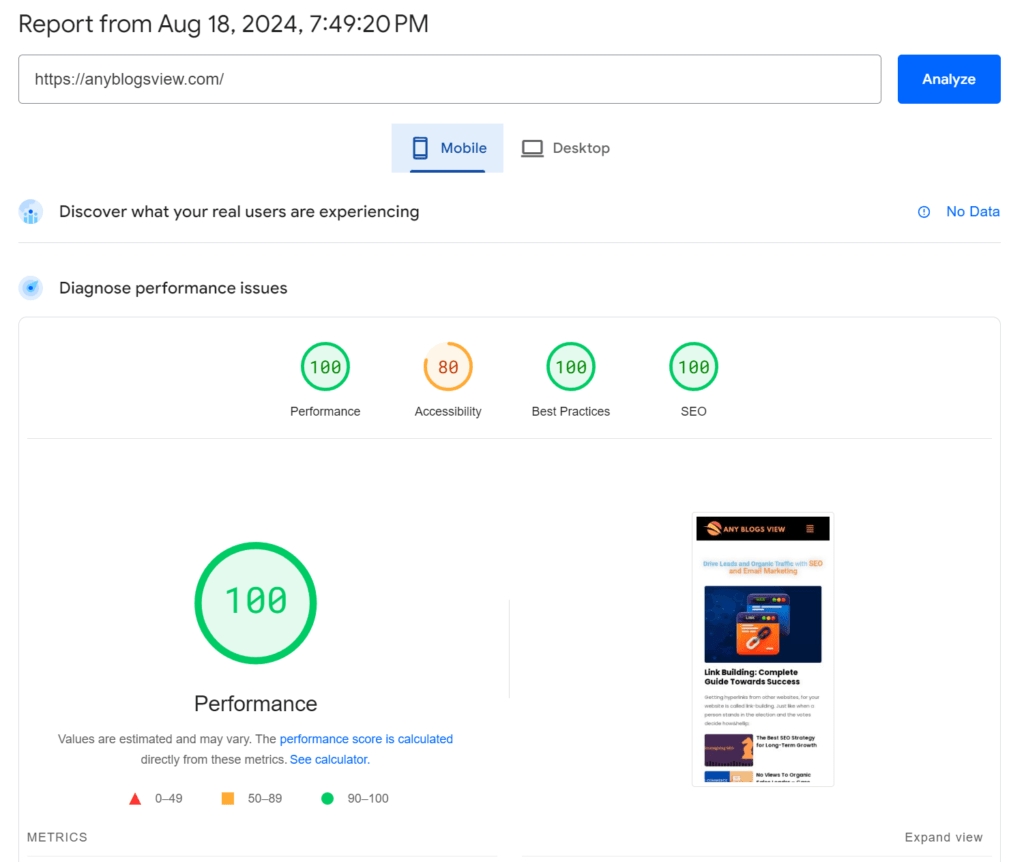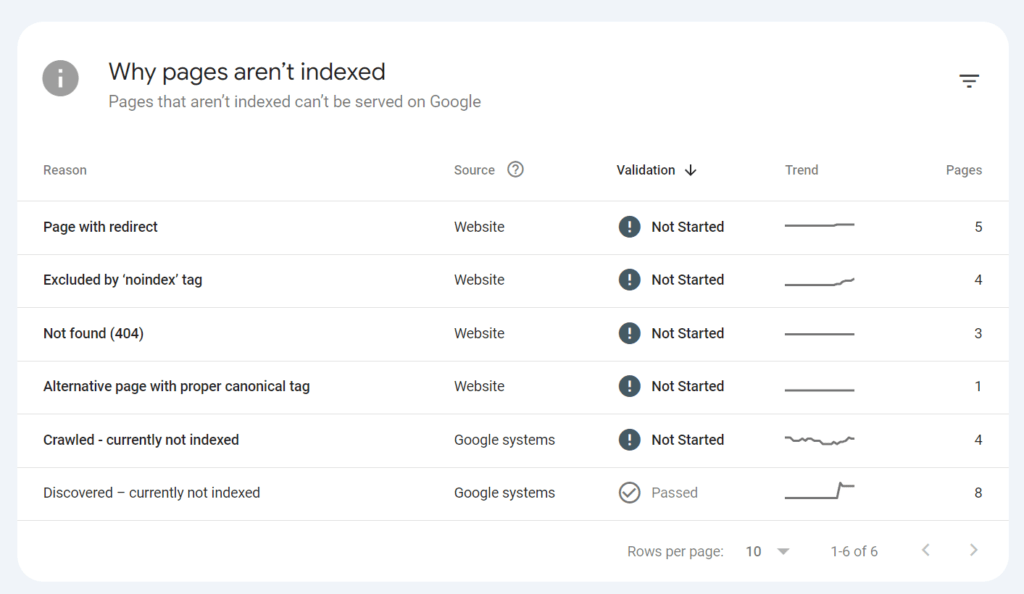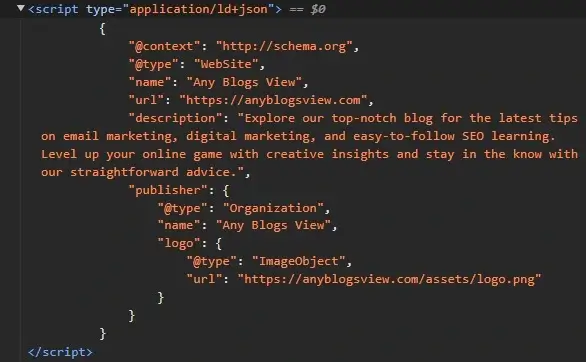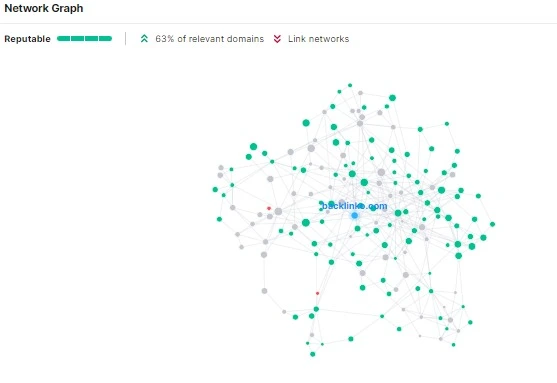Table of Contents
ToggleWebsite Authority refers to the total strength of a domain. It’s also called domain authority. The overall reputation and SEO performance of a website decide the website authority of a domain. If we go deep into a simpler way, your website’s authority depends on how trustworthy and credible you look to the search engines.
It’s influenced by many factors such as content quality, technical SEO, user experience, and backlinks. The higher the website authority is, the more reliable you are to others. Reliability helps you rank better on SERPs and eventually increase organic traffic.
Is Website Authority the Same As Page Authority?
Some might need clarification on website authority and page authority. The most simple way to differentiate is to look at their first words.
Website authority is the authority of a whole website i.e., the entire domain. Its authority depends on its trustworthiness and credibility. Meanwhile, Page authority is the authority of a specific page on a website. And it’s authoritativeness depends on its potential to rank in SERPs.

Most of us know how much backlinks and external links contribute to improving website authority but let’s not forget the on-page elements that set the base. When On-page is optimized, it enhances credibility, improves user experience, and boosts authority.
Domain Authority – The Tool Developed By Moz
Looking at the importance of website authority and how much it is required to be known by the website owners, Moz developed a metric, Domain Authority (DA). It estimates the ability of the website to rank in the SERPs; indirectly, it indicates the website’s overall authority.
The tool shows the score in the range of 1 to 100 where, the higher the score is, the more authoritative your website is. It calculates the DA considering many factors that include-
- Number of domains linked
- The authority of the linked domains
- Total number of backlinks pointing to your website
- The variety of link sources
A website that has a higher DA has a chance to rank higher in search result pages for the keywords you’re targeting. It results in higher organic traffic, CTRs, brand reputation trust, and credibility.
Understanding website authority helps you in knowing what you should goal for and create strategies accordingly to build a strong online presence.
On-Page Elements: The Base Builder
On-page elements are the base setter of your website undoubtedly. They directly affect the website authority – either positively or negatively. When you optimize the on-page elements strategically, through the right ways, you can improve the website’s visibility, credibility, and yes! Ranking potential.
Content Rules The Web
Content rules – everywhere! Be it on-page SEO, off-page SEO, local SEO, technical SEO, and even emails- content’s everywhere. High-quality content is a boon for a website to make it successful. It helps you attract users and engage with them and signal search engines that you provide value simultaneously.
How can you increase the authority of a website through content? Here are some actions to take!
First of all, focus on creating content that fulfills your target audience’s needs and interests. Make the content informative, and engaging and give it a unique edge to stand out from the competition.
Do the keyword research – be mindful of the keywords or phrases you use. Find more relevant keywords and use them naturally throughout the content that you create. Add it to the content body, header tags, meta tags, etc. Avoid keyword stuffing as it may also affect your reach negatively.

While we focus on keyword research- let’s not forget how much content structure means to us. Using clear headings, subheadings, and bullet points makes it easy to scan the content and improve readability.
And while there’s no one answer to how long the content should be – neither does it matter. Be focused on the quality, detail, and information you provide. Take note, that quality should always overrule quantity.
In-depth content is a gateway to enhanced user experience. When you provide high-quality content with clear navigation, it reduces bounce rates and increases stay time on the site. To encourage users to take action, include a CTA in the content to make them take the desired step.
Technical SEO

All of the behind-the-scenes elements or actions happening on the website that help search engines crawl, index, and understand your website is called technical SEO. It’s strongly and most importantly essential for building website authority.
What can you do to improve the technical SEO to increase the website authority? We have all the answers!
Website Speed And Performance
When a website’s speed or, loading time is slow, it can frustrate users and encourage them to move to the next – which, affects search ranks negatively. To not let this happen, reduce the size of files on your website, optimize the image, reduce HTTP requests, and use browser caching to improve the website speed.
Mobile-Friendliness
Mobile devices are getting popular day by day. More and more people are switching to mobile phones for searching and scrolling. In this case, having a mobile-friendly website is important.
To make your website mobile-friendly, implement a responsive design and later, test it on different devices and screen sizes to know if it’s working or needs improvement.
XML Sitemap And Robots.txt
XML sitemaps make it easy to understand a website. It helps search engines in crawling to your website and indexing its pages. On the other hand, robots.txt lets you control the visibility of pages to the search engines i.e., which pages you want the search engine to get crawled to or not is in your hands.

So, create a clear XML sitemap and implement robots.txt to stop search engines from doing unnecessary crawling.
Schema Markup

Schema Markup helps in providing structured data to search engines and understand the motive or, niche of your content better. Through this, search engines are easily able to understand the value of content and consider it for indexing.
To improve your website’s visibility, implement Schema Markup to help search engines understand the content better.
Technical SEO has always been important for making a website strong enough to get crawled to and indexed without any technical error and provide a great user experience as well.
Website Architecture
When a website is well structured, it’s easier for both search engines and users to navigate and understand. An architecture with logic improves user experience and lets the search engines easily understand the website’s content.
To enable this, clear a clear navigation menu that helps users easily find the information they’re looking for. You can also implement a hierarchy in pages and categories. To enhance navigation, like relevant pages of the website internally; this diributes link equity.
Coming to the content, organize it in a logical and user-friendly manner. By that, we men, use categories. Subcategories and tags to organize the content better. To help search engines get the same pleasure, create URLs that are descriptive and keyword-rich to reflect the kind of content a webpage has. Try to avoid long and complex URLs.
User Experience
A positive user experience increases engagement, lowers bounce rates, and results in higher conversion rates. Altogether, it signals that your website is trustworthy and authoritative. Eventually, user experience plays a great role in building website authority.
To make your website user-friendly, design the website from the point of view of your target audience. Make it a visually appealing and attractive interface to let users find content effortlessly. Don’t forget the other factors. These factors include color scheme, typography, layout, and white space on the website. This makes the UX enjoyable.
Other than this, we should remember that not all of our audience can access the website the same. For people with disabilities, follow accessibility guidelines like WCAG. It makes your SEO efforts convert into success as the website becomes more discoverable.
Natural Link Building

Backlinks are the links that you get from other websites i.e., when a website puts a link from your website on theirs, it’s called a backlink. It is an important factor that improves authority. We saw how on-page elements contribute, but being external, backlinks give more confidence.
When your links are found on other authoritative websites, search engines eventually think of you as authoritative and boost your search ranks. So, whenever acquiring backlinks, focus on getting them from highly authoritative and relevant websites.
How can you get backlinks?
- Create shareable content that’s promoted by you on social media and other channels and, can be promoted by others as well.
- Guest posts to get backlinks on authoritative websites and also, to build relationships with those websites and influencers.
- Broken link building is the easiest way to gain a backlink. Audit other websites, identify the broken links, and simply offer them to replace them with yours.
These few link-building strategies can effectively increase a website’s authority and visibility in search results.
Measuring and Improving Website Authority
While we implement strategies and work hard to improve the website in order to increase the website authority, it’s important to regularly monitor and analyze the website authority as well to identify the areas of improvement and track progress.
| Key Metrics to Track | Using Analytics Tools | Making Data-Driven Improvements |
| DA, PA, and other authority scores: Track changes in domain and page authority. | Google Analytics and Search Console: Provides Insights for website performance | Identifying areas for optimization: Analyze to improve website authority |
| Organic traffic and rankings: Track website organic search and top-performing pages. | Other analytics platforms: For deeper analysis. SEMrush, Ahrefs, Moz, etc. | Testing and experimentation: Experiment and text and track all of it to know the improvement and refine optimization strategy. |
| User engagement metrics: The bounce rates, time on site, and user behavior |
Tracking the website regularly, and analyzing and improving it can boost the website’s performance significantly. This, you make an informed decision to build authority and higher search ranks.
Key Takeaways
Website authority doesn’t depend on a single step, factor, or action but, has multiple sides of it that require multiple or say, a holistic approach. Combining high-quality content, strong technical SEO, enhanced user experience and impactful link building can enhance the website’s visibility and credibility in search results much better.
It’s a journey and not the destination – it’s a part of all of your SEO efforts you’re doing to improve your website and get success. To enhance website authority, one needs to make consistent efforts, regularly monitor and update the website and, adopt the latest strategies.
Some key takeaways from this piece of blog are-
- Valuable content that meets the needs of the target audience should be the goal.
- Fast loading speed, mobile friendliness, and proper site structure can improve website authority.
- User experience plays an important role in deciding a website’s fate, so, focus on the usability and accessibility of the website.
- Build high-quality backlinks to get even more authority.
- Lately, tracked and improved website performance regularly and made adjustments to strategies accordingly.
All of your consistent efforts to improve your website for higher website authority can help you gain long-term success and achieve your online goals. Use up all of this and make your website better.
So, are you ready to go on a journey of higher authority websites? Start by conducting a detailed on-page free audit and identify the areas of improvement!

